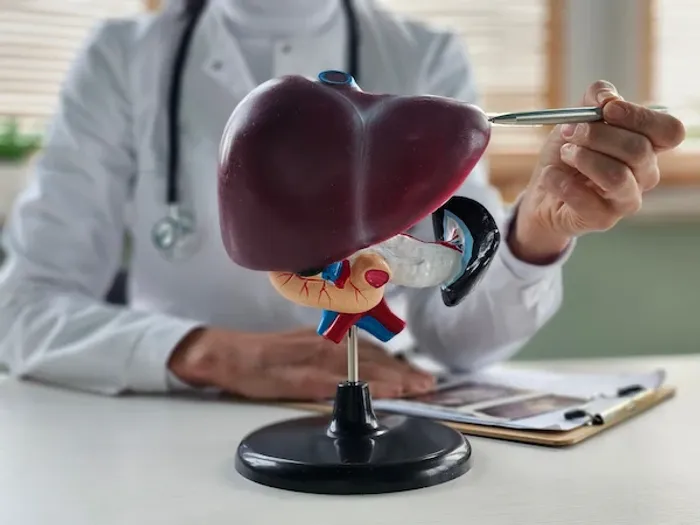Understanding Ascites: Causes and Treatment Options
Know about understanding ascites, what it is, common causes, diagnosis, symptoms and treatment options. Learn about the ways to prevent the ascites.

Written by Dr. Dhankecha Mayank Dineshbhai
Reviewed by Dr. D Bhanu Prakash MBBS, AFIH, Advanced certificate in critical care medicine, Fellowship in critical care medicine
Last updated on 13th Jan, 2026

Introduction
Ascites is a medical condition where excess fluid accumulates in the abdomen, leading to swelling and discomfort. While it can be concerning, understanding its causes, symptoms, and treatment options can help manage the condition effectively.
What is Ascites?
Ascites occurs when fluid builds up in the space between the abdominal organs and the abdominal lining (peritoneum). This buildup can cause noticeable swelling, discomfort, and other complications if left untreated.
Consult a General practitioner for Personalised Advice
Common Causes of Ascites
The most common cause of ascites is liver cirrhosis (scarring of the liver), but other conditions can also lead to fluid accumulation, including:
- Liver disease (cirrhosis, hepatitis, liver cancer)
- Heart failure (when the heart can’t pump blood efficiently)
- Kidney disease (nephrotic syndrome, kidney failure)
- Infections (such as tuberculosis or peritonitis)
- Certain cancers (ovarian, pancreatic, or stomach cancer)
- Pancreatic disorders (chronic pancreatitis)
Symptoms of Ascites
The most noticeable sign is abdominal swelling, but other symptoms may include:
- Bloating or heaviness in the abdomen
- Shortness of breath (due to pressure on the lungs)
- Weight gain (from fluid retention)
- Loss of appetite or feeling full quickly
- Nausea or indigestion
- Swelling in the legs (oedema)
If you experience these symptoms, it’s important to consult a doctor for proper diagnosis and treatment.
How is Ascites Diagnosed?
Doctors may use the following tests to confirm ascites:
1. Physical examination – Checking for abdominal swelling and fluid movement.
2. Ultrasound or CT scan – Imaging tests to detect fluid buildup.
3. Blood tests – To check liver, kidney, and protein levels.
4. Paracentesis – A procedure where a small amount of abdominal fluid is removed and tested for infections or cancer.
Get Your Health Assessed
Treatment Options for Ascites
Treatment depends on the underlying cause but may include:
1. Lifestyle and Dietary Changes
- Low-sodium diet – Reducing salt helps prevent fluid retention.
- Fluid restriction – In severe cases, limiting water intake may be necessary.
- Alcohol avoidance – Essential if liver disease is the cause.
2. Medications
- Diuretics (water pills) – Help the body remove excess fluid.
- Antibiotics – If an infection is present.
3. Medical Procedures
- Therapeutic paracentesis – Draining excess fluid for relief.
- Shunt placement (TIPS procedure) – Helps redirect blood flow in liver-related ascites.
4. Treating the Underlying Condition
- Managing liver disease, heart failure, or cancer is crucial for long-term control.
When to Seek Medical Help?
If you notice:
- Rapid abdominal swelling
- Severe pain or fever
- Difficulty breathing
- Confusion or drowsiness (signs of liver dysfunction)
Seek immediate medical attention, as these could indicate complications like infection or liver failure.
Can Ascites Be Prevented?
While not all cases are preventable, you can reduce the risk by:
- Maintaining a healthy liver (avoid excessive alcohol, get vaccinated for hepatitis).
- Managing heart and kidney conditions with regular check-ups.
- Following a balanced, low-sodium diet.
Final Thoughts
Ascites can be managed effectively with the right treatment and lifestyle adjustments. It can also be prevented by keeping a healthy body and dietary habits. If you or a loved one is experiencing symptoms, consult a doctor for proper evaluation.
Consult a General practitioner for Personalised Advice
Consult a General practitioner for Personalised Advice

Dr. Vivek D
General Physician
4 Years • MBBS
Bengaluru
PRESTIGE SHANTHINIKETAN - SOCIETY CLINIC, Bengaluru

Dr Syed Mateen Pasha
General Physician
2 Years • MBBS
Bengaluru
PRESTIGE SHANTHINIKETAN - SOCIETY CLINIC, Bengaluru

Dr. Anand Ravi
General Physician
2 Years • MBBS
Bengaluru
PRESTIGE SHANTHINIKETAN - SOCIETY CLINIC, Bengaluru

Dr. Syed Ismail Ali
General Practitioner
7 Years • MBBS
Hyderabad
Apollo 24|7 Clinic, Hyderabad

Dr. Debajyoti Goswami
Obstetrician and Gynaecologist
10 Years • MBBS,D.G.O(DNB),Adv. Infertility Tech.(AIIMS),Fellowship in Diabetes(U.K),Comprehensive Abortion Care(Govt. Of W.B), Certificate in Clinical Embryology(AIIMS, BHUBANESWAR)
Bankura
D.G Clinic, Bankura
(25+ Patients)
Consult a General practitioner for Personalised Advice

Dr. Vivek D
General Physician
4 Years • MBBS
Bengaluru
PRESTIGE SHANTHINIKETAN - SOCIETY CLINIC, Bengaluru

Dr Syed Mateen Pasha
General Physician
2 Years • MBBS
Bengaluru
PRESTIGE SHANTHINIKETAN - SOCIETY CLINIC, Bengaluru

Dr. Anand Ravi
General Physician
2 Years • MBBS
Bengaluru
PRESTIGE SHANTHINIKETAN - SOCIETY CLINIC, Bengaluru

Dr. Syed Ismail Ali
General Practitioner
7 Years • MBBS
Hyderabad
Apollo 24|7 Clinic, Hyderabad

Dr. Debajyoti Goswami
Obstetrician and Gynaecologist
10 Years • MBBS,D.G.O(DNB),Adv. Infertility Tech.(AIIMS),Fellowship in Diabetes(U.K),Comprehensive Abortion Care(Govt. Of W.B), Certificate in Clinical Embryology(AIIMS, BHUBANESWAR)
Bankura
D.G Clinic, Bankura
(25+ Patients)


